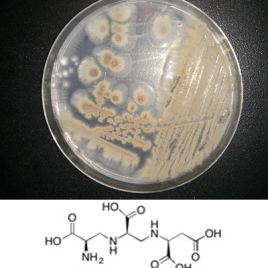The positive effect of exercise on diabetes is well established, but new research suggests that alternating between high-intensity and low-intensity exercise is required for best results. Researchers examined control of blood sugar levels in three groups; one that did not exercise, one that did continuous low-intensity exercise, and one that alternated between high and low […]
Tag: health

CPR guidelines could be improved
Three physicians argue for re-introducing the traditional ‘head-tilt-chin-lift’ technique to cardiopulmonary resuscitation (CPR) for untrained bystanders in a new commentary article. The technique was eliminated as part of an effort to make CPR instructions easier to understand and thus more likely to be used. The authors say that completely removing mouth-to-mouth instructions is dangerous for patients […]
Take two parasites and call me in the morning
Two recent papers published by members of the Canadian Institute for Advanced Research (CIFAR) have questioned our traditional perception of intestinal parasites. The first, published July 14, 2014 in Trends in Parasitology is a systematic review of cases where humans have deliberately ingested parasites for research and suggests that certain parasites could have beneficial effects on conditions […]
Common blood thinner ineffective for pregnant women
A new study indicates that daily injections of a blood thinner does not effectively decrease the risk of pregnancy complications in women with a tendency to develop blood clots. A large-scale, randomized trial was never conducted and until now it’s effectiveness has been unknown. The new study followed 292 women over 12 years and […]
Bacteria present in semen linked to HIV transmission
A new study has found that the diversity and number of bacteria in semen are connected with the level of HIV virus and thus the risk of transmission. While bacteria are common in semen, the study found that HIV-infected men who have sex with men have lower bacterial diversity than uninfected controls. They also found […]

Blood changes in monkeys near Fukushima
Wild Japanese monkeys inhabiting a forest located 70 km from the Fukushima nuclear power plant have lower blood cell counts than monkeys from Northern Japan, a new study finds. The Fukushima nuclear power plant was badly damaged by a tsunami in March 2011. Red and white blood cell count were lower in the Fukushima monkeys. […]
Seniors still at risk of stroke 2 years after heart surgery
Older people who have undergone surgery are at increased risk of suffering a stroke for up to 2 years afterward, a new study shows. While it was known that the risk increases immediately after surgery, the new study shows that the risk period extends longer than expected. Researchers followed 108,711 patients who had cardiac surgery […]
Community-based approach helps fight TB in Nunavut
A community-based approach to TB awareness and screening in Nunavut has resulted in an increase in detection and treatment. Nunavut is the only area of Canada where TB rates are increasing; in 2010 it was 60 times higher than the national rate. An awareness and door-to-door screening campaign called Taima TB – Taima is Inuktitut for […]
Lower risk of cerebral palsy among immigrant children
A new study shows that babies born in Ontario from immigrant mothers have a 23% lower risk of cerebral palsy (CP), a common motor disability that appears at age 4 and for which there is no cure. The study followed all single births in Ontario from 2002 to 2008. The rate of CP among non-immigrant […]
Cardiac rehabilitation is underused worldwide
Helping patients manage heart disease through diet and exercise is a proven and cost-effective strategy, yet its use worldwide is limited, a new review shows. Cardiac rehabilitation programs provide education, exercise and risk reduction and have been shown to reduce mortality by up to 25 per cent. Yet worldwide, only 39 per cent of countries […]
Ontario physicians more likely to register for organ donations than general public
A new study led on 15,000 physicians in Ontario shows that 43.3 percent of them registered for organ and tissue donation, an higher rate than the general population (23.9 percent). This is the first study to document rates of actual organ donor registration among physicians in Canada, and authors conclude that this finding should help […]
Kidney Donation is safe for older adults
Healthy kidney donors aged 55 years and older enjoy similar longevity and cardiovascular health than similar non-donor adults, a new study shows. The authors matched 3368 American donors to older healthy non-donors and followed them for nearly 8 years between 1996 to 2006 and found out that that donors were not at a higher risk […]

Accurate drug testing on the go
Researchers have found a way to condense a complete drug-testing lab into a device the size of a backpack. The device uses a technique called microfluidic to extract compounds from a dried urine spot and subject it to complex chemical analysis by mass spectrometry. The new device detected cocaine and other drugs at concentrations down to […]
Sugar intake linked to breast density
A new study links a high intake of sugar to an increase in breast density, which is one of the indicators of breast cancer risk. The study tracked 776 premenopausal and 779 postmenopausal women from two mammographic screening clinics in Quebec City. While none of the participants had a very high sugar intake, those who reported […]

Oldest human poo shows Neanderthals ate their greens
Chemical analysis of 50,000-year-old fossilized droppings found in Spain suggest that Neanderthals ate more greens than previously thought. Researchers compared the levels of chemicals such as coprostanols – formed from meat in the digestive tract – to those of other chemicals like 5b-stigmastanol, which are digestive products of plants. They conclude that while Neanderthals ate […]

Fungal extract could combat drug-resistant bacteria
A chemical extracted from a fungus could help maintain the effectiveness of key antibiotics. In a new study, a fungal extract called aspergillomarasmine A was shown to inhibit NDM-1 and restore the effectiveness of carbapenems against certain bacteria in lab studies. Carbapenems are considered to be ‘antibiotics of last resort’ for many infections due to […]
